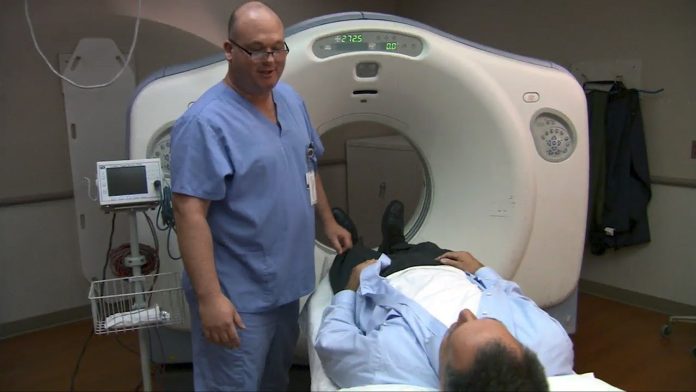A calcium-score screening cardiac test (coronary scan) uses computed tomography (CT), which detects calcium deposits in the coronary vessels of your heart. Higher levels of coronary calcium score indicate that there is a greater likelihood of narrowing the coronary blood vessels, which can lead to future heart attacks.
Who Should Receive A Screening To Determine Their Calcium Score?
If you are 40-70 years old and at high risk for heart disease but have no symptoms, it is worth considering a calcium test. These are some of the characteristics that put you at risk.
- Family history of heart disease
- Past or present smoker
- High cholesterol, diabetes, or high blood pressure history
- Overweight
- Inactive lifestyle
- Other risk factors other than traditional
CT scans cannot determine your risk of developing a life-threatening condition, such as a heart attack, because there are some forms of coronary illness, such as “soft plaque” arteriosclerosis.
Who Should Not Undergo a Calcium Scan?
A coronary calcium scanner may not be appropriate for you if your symptoms are similar to those of coronary artery disease. Talk to your doctor about other tests that can be done to diagnose or monitor your heart disease.
How Can I Do A Calcium-Score Scan On My Computer?
- The test can be ordered by your doctor (primary care or cardiology).
- CT scanners use high-resolution X-rays. There is no contrast dye, and radiation exposure is low. This is not recommended if pregnant.
What Happens During The Exam?
- Change into a hospital outfit.
- A special scanning table will be used to scan you.
- The technologist will then clean three areas of your chest. Men might have their chests partially shaved in order to make sure the electrodes stick. The electrodes attach to an electrocardiograph, which monitors your heart’s electrical activity.
- The scanner will vibrate in a donut-shaped shape during the scan. The CT scan is high-speed and captures multiple images. It also tracks your heartbeat. A sophisticated computer program guided by the cardiovascular radiologist then analyses the images for any signs of calcification.
The CT scan can be completed in a matter of minutes. However, it may take longer than that.
How Do You Get The Results?
A doctor reviews the CT scan results and shares them with your healthcare provider.
The calculation of your CT calcium score is done. Your provider will also discuss with you your percentile scoring based on age, gender, and ethnicity.
Your provider may also receive any findings from outside your heart.
What Does The Score Mean?
The calcium score ranges from zero to over 400. It should also be considered in conjunction with other risk factors (such as race, diabetes and smoking, family history, cholesterol, and blood pressure) to determine your future risk of coronary heart disease.
What If Your Healthcare Provider Doesn’t Approve You Ordering This Test?
Talk with your healthcare provider if calcium screening seems right. Your provider will order the calcium screening cardiac scan. This will allow you to take appropriate action based on your findings. Your primary care provider may recommend that you see a cardiologist after reviewing the scan. It is possible to refer patients to the appropriate specialists if there are any other findings.

